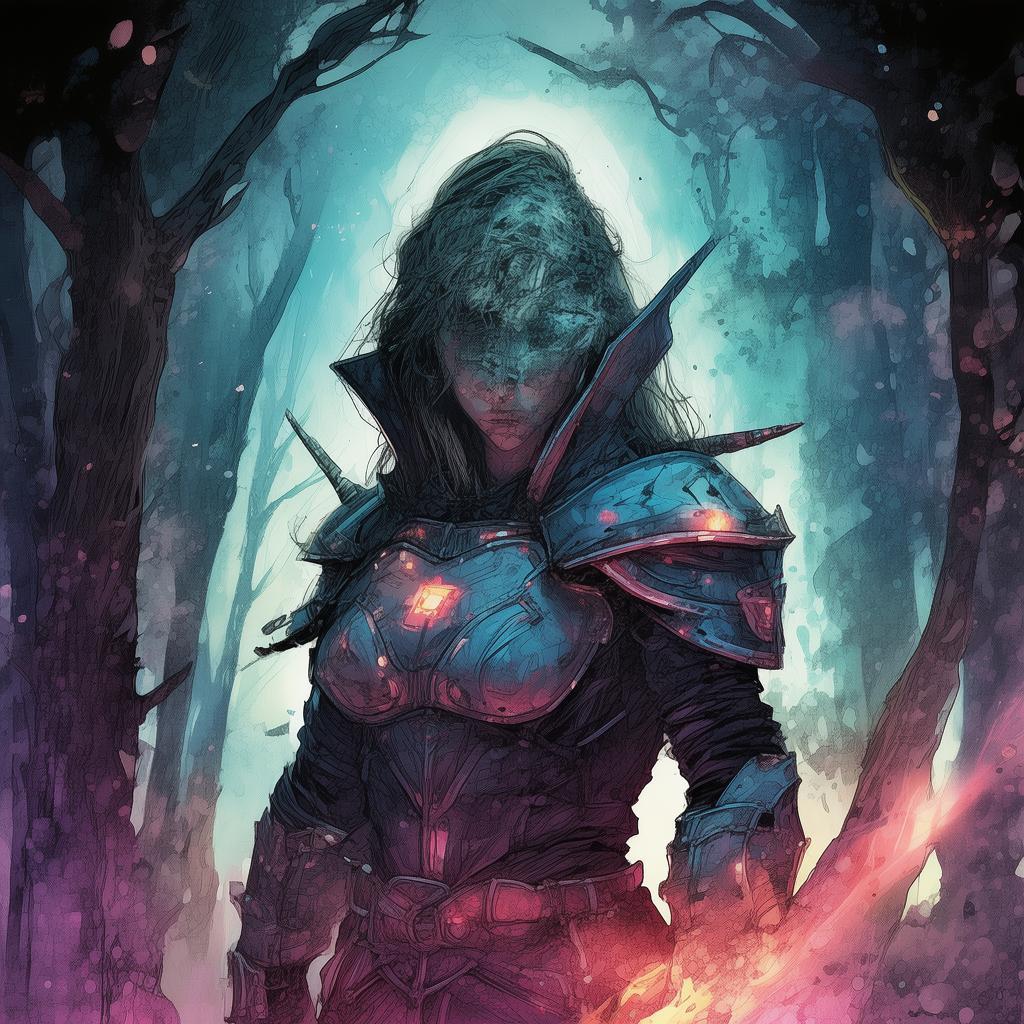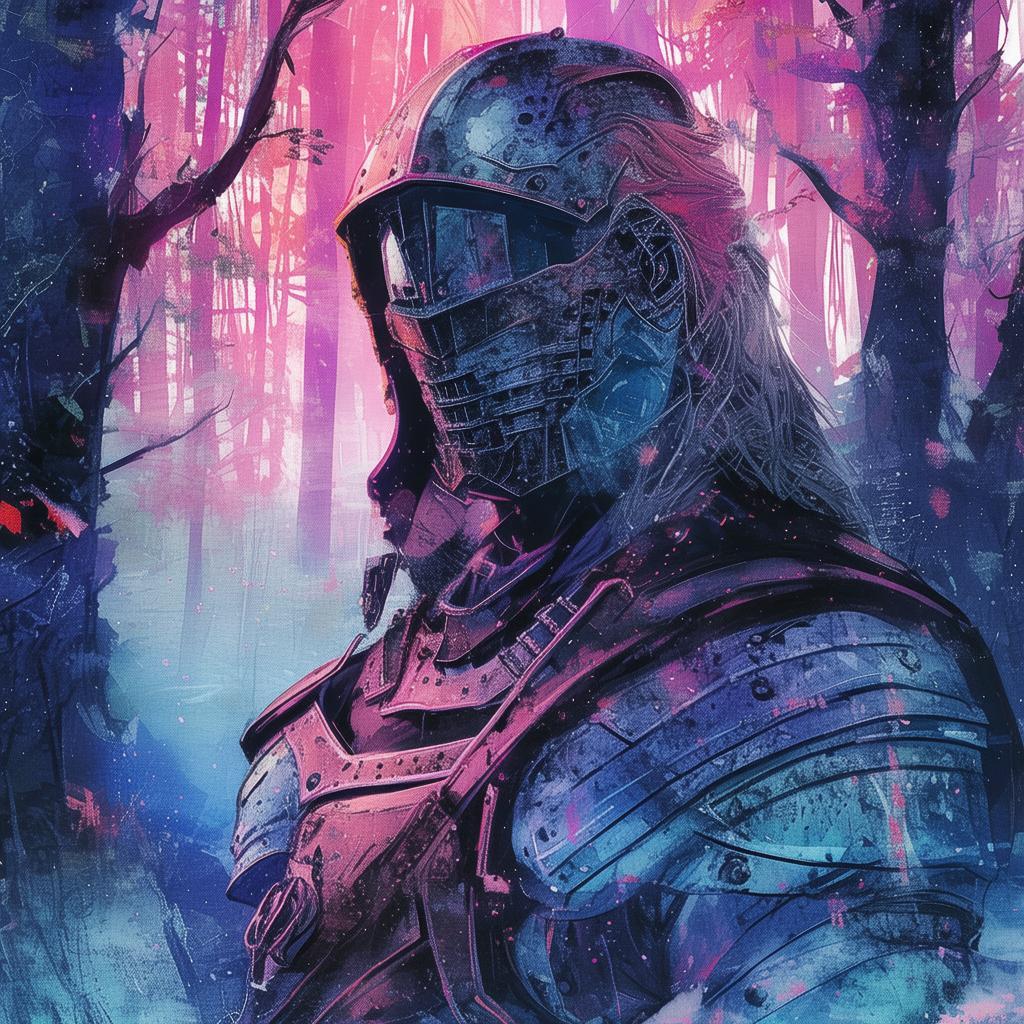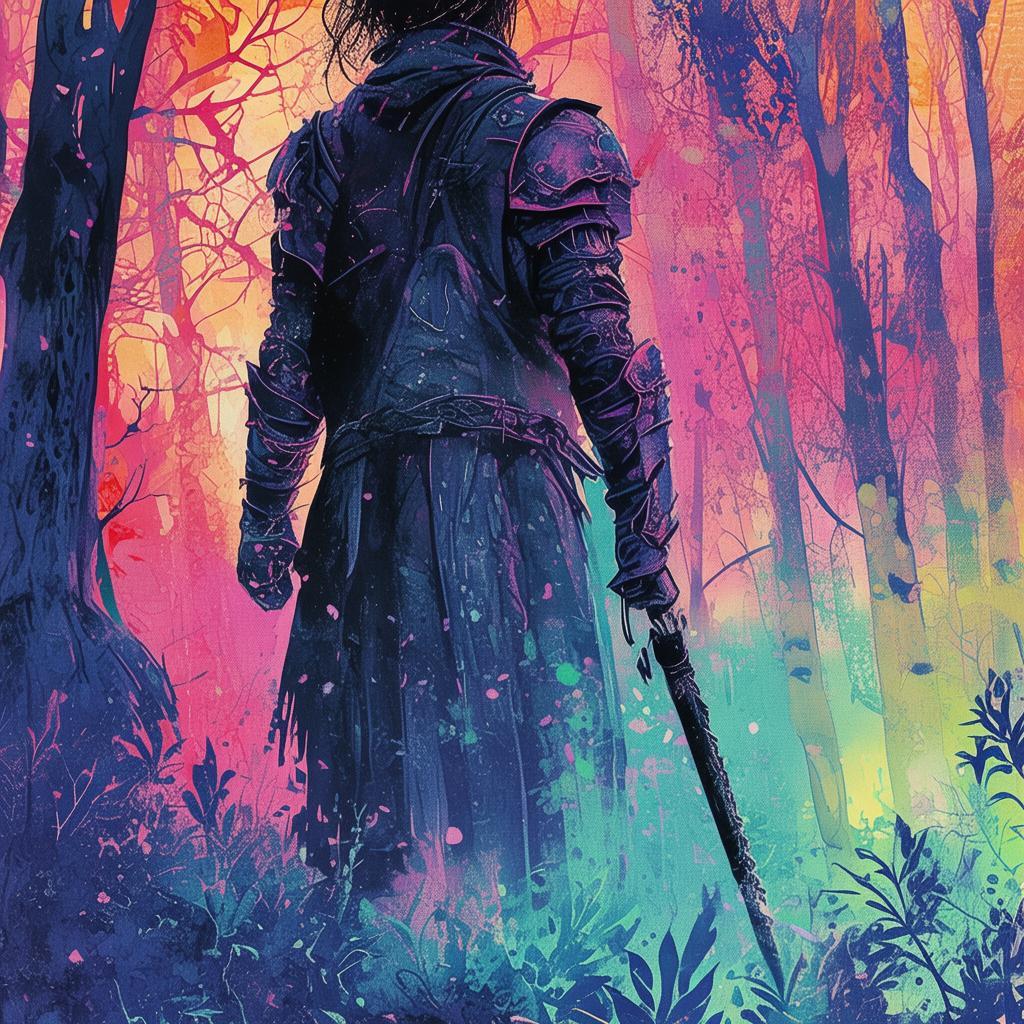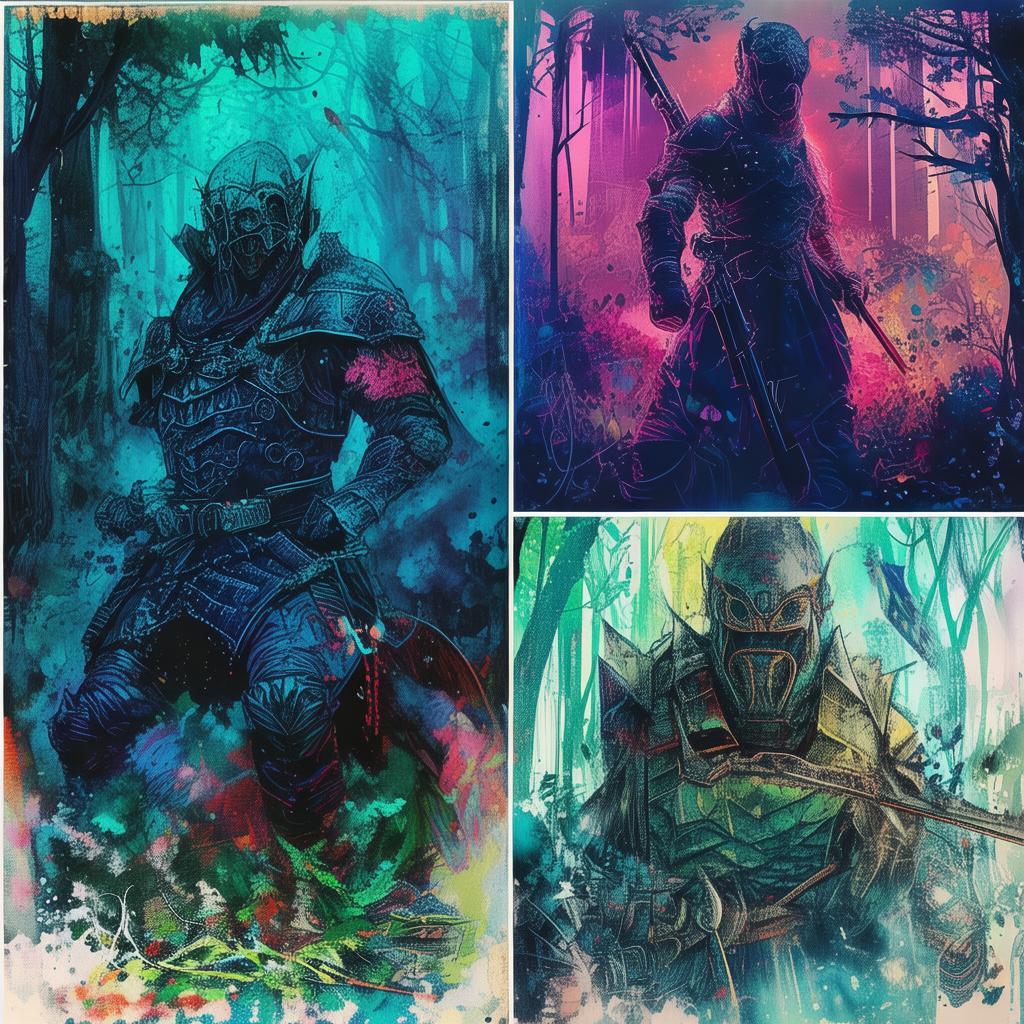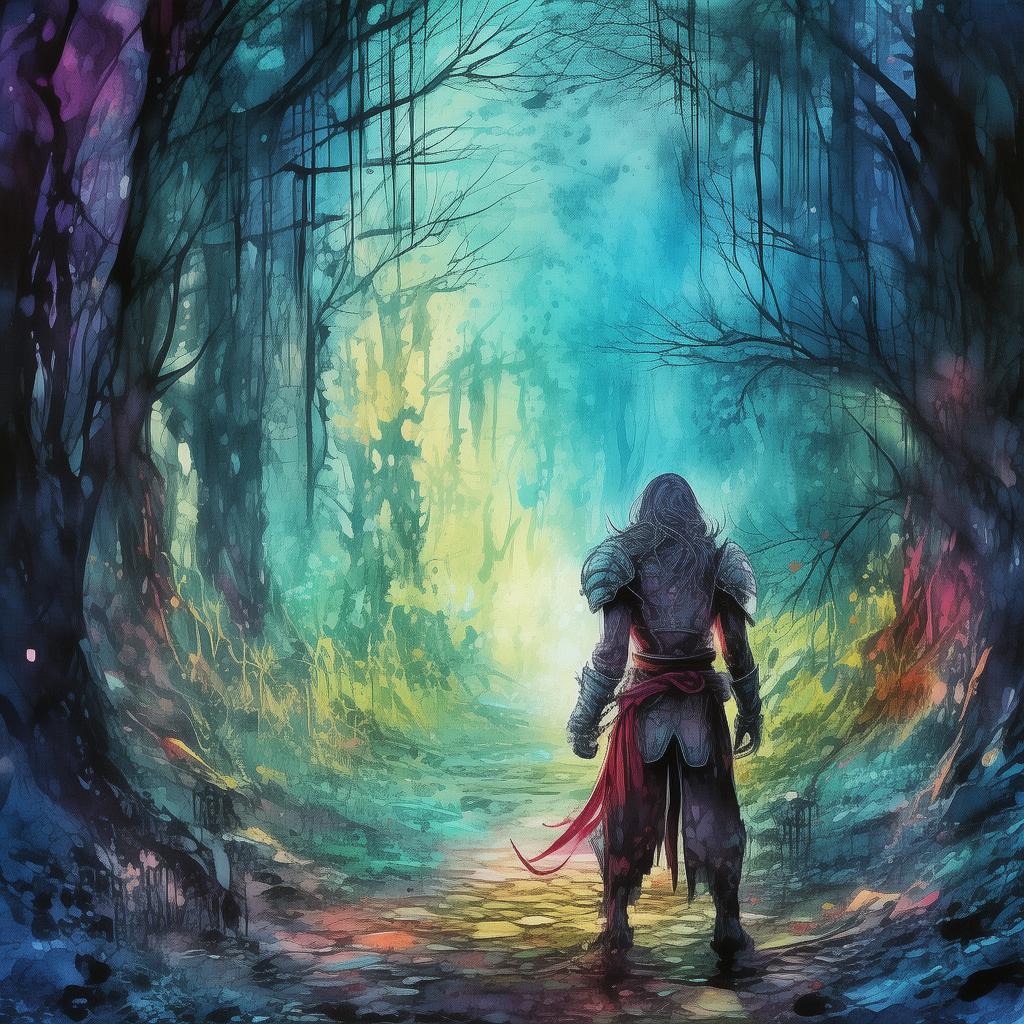The Labyrinth of Destiny: A Chessboard of Babylonian Foresight
In the heart of ancient Babylon, under the weight of a sky that seemed to weep with the weight of the ages, there lay a chamber shrouded in silence and shadows. It was here, in the depths of the royal palace, that the Chessboard of Babylon, an artifact of ancient prophecy, lay dormant, its surface etched with symbols that whispered of fate and the threads of time.
The king of Babylon, a man whose name was forgotten to history, was a ruler of great ambition and questionable wisdom. He sought to extend his reign, to etch his name into the annals of time, but the fates were not so easily swayed. The Chessboard of Babylon, a relic of a forgotten age, was said to hold the key to the future, a labyrinth of destiny that could foretell the rise and fall of empires.
One day, as the sun dipped below the horizon, casting long shadows that danced upon the walls, a wise sage named Zariel was summoned to the chamber. His eyes, deep and knowing, met the king's gaze, and he knew the purpose of his visit. The king, with a voice that was a mix of desperation and fear, asked Zariel to interpret the symbols upon the chessboard.
Zariel approached the board with reverence, his fingers tracing the intricate patterns. "Sire, the board speaks of a great conflict, a war that will test the very foundations of Babylon. The pieces move, and the fate of the kingdom is written in the stars."

The king's eyes widened, and he nodded, a cold smile playing upon his lips. "Tell me, sage, what is the outcome?"
Zariel's eyes met the board once more, and he spoke, his voice steady despite the weight of the words he was about to utter. "The outcome is not written in stone, sire. The future is shaped by the choices of the present. The king, the pawn, the bishop, the knight, and the queen—each must play their part."
As the sage spoke, a young pawn, a lowly servant named Kael, stood at the edge of the room, his eyes wide with curiosity and fear. He had heard whispers of the chessboard, of its power to see the future, and now he watched, mesmerized, as the pieces began to move on their own.
The next morning, the king summoned Kael to his presence. "You will play the pawn in this game of destiny," the king declared, his voice a mixture of command and malice. "You will move the pieces, and you will do so with the knowledge that your actions will shape the fate of Babylon."
Kael, though a pawn, was no stranger to courage. He had seen the ravages of war, the suffering of the people, and he knew that the future of Babylon rested on the shoulders of the least among them. With a heavy heart, he accepted his role and stepped into the labyrinth of destiny.
The game began, and Kael moved the pieces with a precision that surprised even himself. The king, a master of manipulation, watched with a calculating gaze, his every move a step closer to his vision of an eternal reign. But as the pieces moved, the labyrinth of destiny began to twist and turn, revealing paths that were not written in the stars.
The sage, Zariel, watched from the shadows, his eyes reflecting the wisdom of ages. He knew that the true power of the chessboard lay not in the predictions it made, but in the choices that were made in the present. The fate of Babylon was not sealed, but it was being written by the actions of its people.
In the midst of the game, Kael found himself at a crossroads. The king, his gaze piercing, demanded that he move the pawn to a position that would ensure his victory. But Kael, with a heart full of compassion, knew that such a move would lead to the suffering of his people.
In a moment of truth, Kael chose to defy the king, to move the pawn in a way that would lead to the liberation of Babylon. The board groaned under the weight of his decision, and the pieces moved with a force that defied the laws of nature.
The king, his face contorted with rage and disbelief, demanded an explanation. "Why did you defy me?" he thundered.
Kael stood tall, his eyes meeting the king's. "Because, sire, the future is not a fixed path, but a tapestry of choices. I choose to free Babylon, not to enslave it."
The king's face turned pale, and he knew that the game was over. The labyrinth of destiny had revealed its truth, and the fate of Babylon was now in the hands of its people.
As the sun rose the next morning, casting a golden glow upon the city, Babylon awoke to a new day. The king, humbled by the wisdom of the pawn, decreed a new era of peace and prosperity. The Chessboard of Babylon, once a tool of manipulation, had become a symbol of hope and freedom.
Kael, the once humble pawn, was hailed as a hero, his name etched into the annals of Babylon's history. And the sage, Zariel, with a knowing smile, watched as the people of Babylon began to weave their own destiny, free from the constraints of the past.
The Chessboard of Babylon had spoken, and its prophecy had been fulfilled, not by the power of the king, but by the courage of a pawn who chose to move beyond the confines of fate and into the realm of possibility.
✨ Original Statement ✨
All articles published on this website (including but not limited to text, images, videos, and other content) are original or authorized for reposting and are protected by relevant laws. Without the explicit written permission of this website, no individual or organization may copy, modify, repost, or use the content for commercial purposes.
If you need to quote or cooperate, please contact this site for authorization. We reserve the right to pursue legal responsibility for any unauthorized use.
Hereby declared.
